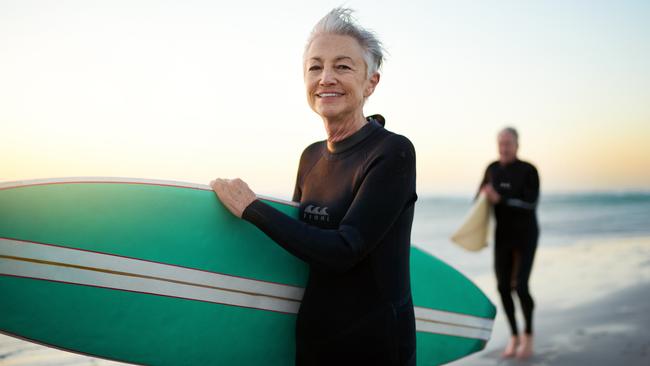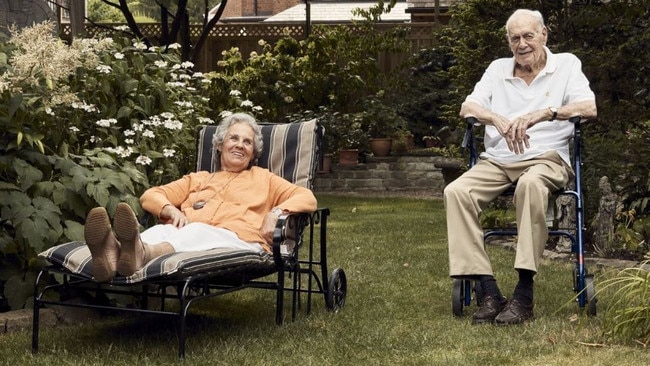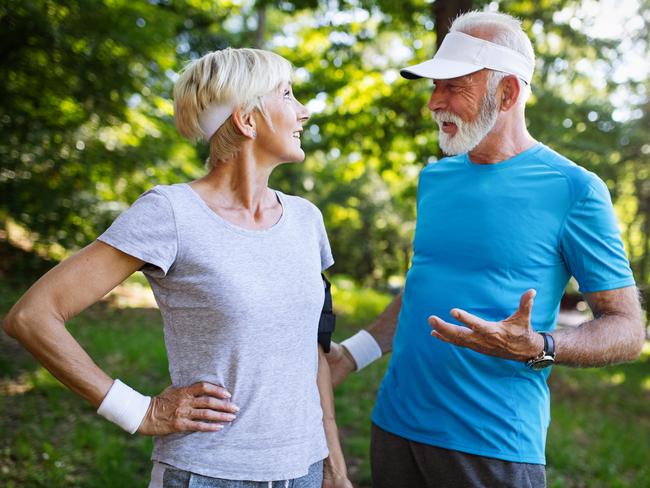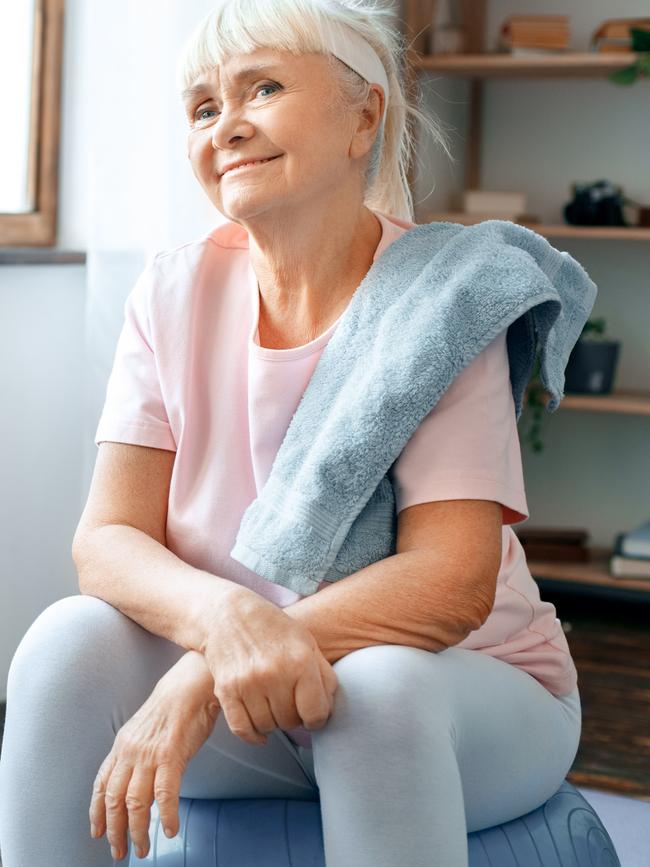How men and women age differently
Researchers find important gender-based distinctions in how ageing affects cardiovascular health, immunity and the brain.

Lois and Milt Michaels hosted a dinner party for 15 friends last year at their home in Pittsburgh.
Women outnumbered men in the group, which ranged in age from 84 to 99. Since the dinner party, two of the friends have died, both of them men. That saddened but didn’t surprise Dr Michaels, a 93-year-old retired physician. “Women live longer than men,” he said.
It has long been known that women tend to outlive men, and their longevity streak is likely to continue.
Life expectancy for women is expected to reach 87.3 years, and 83.9 years for men, by 2060, according to the US Census Bureau. Researchers — including those in the emerging field of geroscience, the study of ageing and age-related disease — are trying to piece together why.
“A lot of people say men smoke and work harder jobs, and that’s why they don’t live as long,” said David Sinclair, co-director of Harvard Medical School’s Paul F. Glenn Centre for Biology of ageing Research. “There are genetic and biological differences.”
By examining gender-based distinctions in the immune system, cell structure, brain and other systems, researchers are discovering how and why men and women grow older in clearly different ways.
Their findings could help explain why COVID-19 has had a greater impact on older men than older women. A recent study found that men, after the age of 65, lost important antibody-producing B cells in the blood, while women didn’t.
“It was surprising,” said Duygu Ucar, an associate professor who led the study at the Jackson Laboratory for Genomic Medicine in Farmington, Connecticut. The research team also found that men, as they age, experience greater inflammation in their blood, which has been associated with severe cases of COVID-19.

Laugh lines vs frown lines
Other gender distinctions emerge with age. Men develop more laugh lines, women more frown lines. Recent studies show women are better able to locate car keys and more likely to see a doctor when they don’t feel well. They sleep about 20 minutes less a day than men.
“Men and women age differently. We’re kind of guessing how,” said Marcia Stefanick, a professor at Stanford University School of Medicine. Women have long been left out of ageing-related studies, she said, so researchers are playing catch-up. And many social, cultural and economic factors also set women and men apart as they age.
Still, patterns are emerging. Nir Barzilai, director of the Institute for ageing Research at the Albert Einstein College of Medicine, looked at the blood of men and women between the ages of 65 and 95 and found protein levels changed at different rates. Less change means more stability, he said. Men’s levels changed far more than women’s, with 600 significant changes versus 277 for women, according to the study, published in December.
“The female biology seems to be more stable than men’s,” said Dr Barzilai, the author of Age Later who specialises in geroscience.
Michael Ullman, a Georgetown University neuroscience professor, wanted to know whether age, sex and education played roles in declarative memory, which helps people remember things like specific events, the name of a new neighbour or where they left their keys.
His team showed drawings of real and made-up objects to 704 adults ranging in age from 58 to 98. Several minutes later, they were presented with drawings of twice as many objects and asked to recall which ones they had seen earlier. They found men and women did equally well in remembering previously seen items until age 70, after which “significant female advantage emerged”, according to a study published last month in ageing, Neuropsychology, and Cognition.
Benefits of education
In addition, education appears to benefit women far more as they age. The declarative memory abilities of an 80-year-old woman with a bachelor’s degree would be as good as those of a 60-year-old woman with a high-school education, according to the study. Memory gains associated with education were less pronounced in men.

“We knew education helps memory, but the sex difference was really striking,” Dr Ullmann said.
The findings highlight the importance of access to education and suggest it might help counter memory declines in ageing — especially for women, who are disproportionately affected by Alzheimer’s disease, for reasons researchers are still trying to understand.
Heart disease is predominantly associated with older men, but women’s blood pressure starts rising earlier, in their 30s, and at a faster rate than it does in men, said Susan Cheng, a cardiologist at the Smidt Heart Institute at Cedars-Sinai in Los Angeles. Her study, released earlier this year, shows women’s blood vessels age faster, too.
“The assumption was that women simply caught up with men in terms of cardiovascular risk, not that they have different biology and physiology,” she said.
The findings help explain why women tend to develop different types of cardiovascular diseases with different symptoms.
Audrey Hyman, 74, found that was the case among women in her family. She has high blood pressure, as did her mother. “As I get older, I realise it’s harder for me to control than it was a couple of years ago,” she said.
Her 84-year-old husband, Alexander, doesn’t have heart disease or chronic illness. His big issue is mobility; with pain in his back and legs, he stays home and reads, mainly mysteries.
“She gets around better than I do,” Mr Hyman said of his wife.
The couple, both retired from the Washington public school system, own a travel agency. Mr Hyman takes care of the management and billing; Ms Hyman handles marketing and networking.
“My husband notices where I put things,” she said. “So when I ask, ‘Did you see this?’ he can tell me. We help each other like that.”

Ms Hyman is more deliberate than her husband about keeping fit. She belongs to a walking group, meditates, reads stories to children on Facebook and is in the middle of writing two books.
“I’m trying to do things to keep my mind going and am more health-conscious,” she said.
Women tend to make more of an effort to maintain their physical and mental health as they age, said psychologist Katharine Esty, who interviewed 128 octogenarians for her book Eightysomethings.
“Men will still eat steak and order french fries,” said Dr Esty, who is 85.
She found both men and women seem to drop social expectations as they grow older.
“Men become more gentle. They cry. They cook and bird-watch,” she said. “Women start to allow themselves to be sharp and outspoken.”
Accepting age
Jacqueline Olds, a psychiatrist in her early 70s, said she finds women have a harder time accepting age. “Women feel more stricken and panicked by the loss of looks,” she said. “Men age, too, but the source of their power doesn’t emanate as much from their looks.”
The big issue for older men is retirement and “fearing they would become meaningless”, said Dr Olds’s husband, Richard Stanton Schwartz, a practising psychiatrist also in his early 70s.
He is more accepting of growing older than she. Dr Schwartz recalls starting to lose his hair at the end of high school.
“I went through a very early version of the trauma and shock of ageing that has eased it for me later on in life,” he said.
“I’m more in denial of ageing.”

In Pittsburgh, Ms Michaels, who is 88 and legally blind, wakes up early and tends her garden, with its small pond, waterfall and stone walks lined with tall white flowers. “I spend more time outside. He spends more time inside,” Ms Michaels said of her husband.
Dr Michaels uses a walker and cane because he can no longer flex one foot. A chairlift carries him up the few steps to their bedroom, which has a table, large chair and afternoon sunlight for reading. He reads two newspapers a day, the New England Journal of Medicine and the New Yorker.
Both hips were replaced before he retired at age 78. His health is good. He takes a few pills, none critical. “If I couldn’t get a refill, I would not drop dead,” he said.
Humour is something the couple shares; it has become more important as they grow older and spend more time together. They joked about the number of defective hearing aids at their dinner party last year.
“I think we had seven people wearing them and five didn’t work,” said Ms Michaels, who retired 20 years ago after a career in public health.
She thinks she is less annoyed by limitations than her husband, in part because she has been dealing with vision loss for 20 years, and broken bones from stumbling and falling. Women her age, she said, tend to be more resilient than men.
“We had to multi-task,” she said. “Older men didn’t do as much as today’s younger generation of husbands and partners. They didn’t see themselves as needing to.”
Dr Michaels might be annoyed by limitations, but he has come to accept them.
“There’s an element of frailty that goes with age,” he said. “If I try to walk and make a fast turn, I might end up on the ground.”
Recently, he couldn’t come up with the word “riptide” when telling a story.
He said he has changed in other ways, too. “I’ve gotten nicer,” he said. “When she asks, ‘What do you want to eat?’ I say, ‘Whatever you make.’ ”
The Wall Street Journal







To join the conversation, please log in. Don't have an account? Register
Join the conversation, you are commenting as Logout